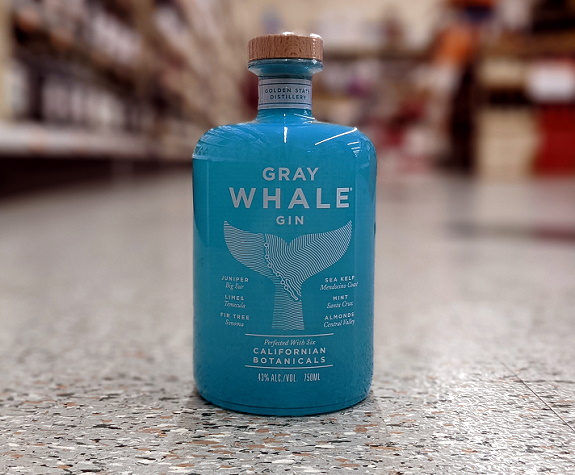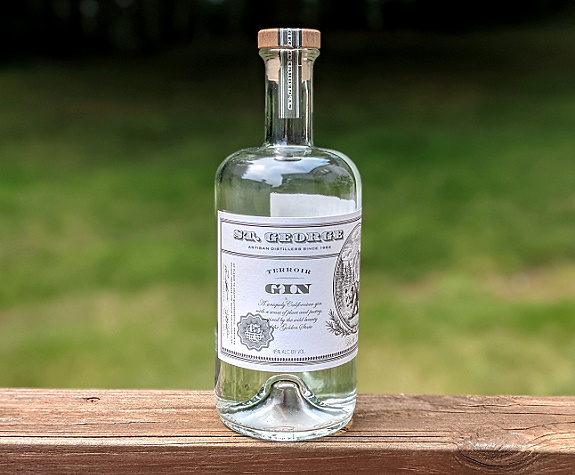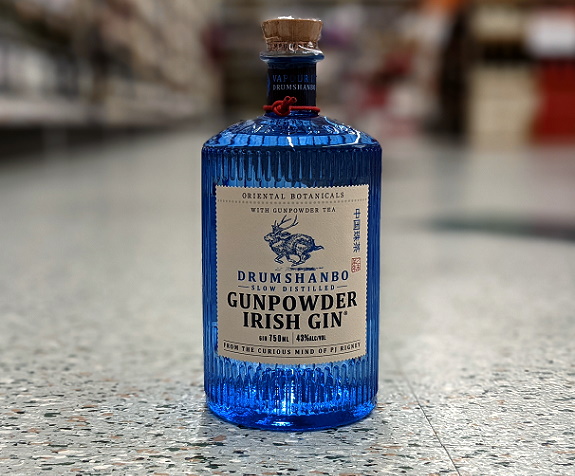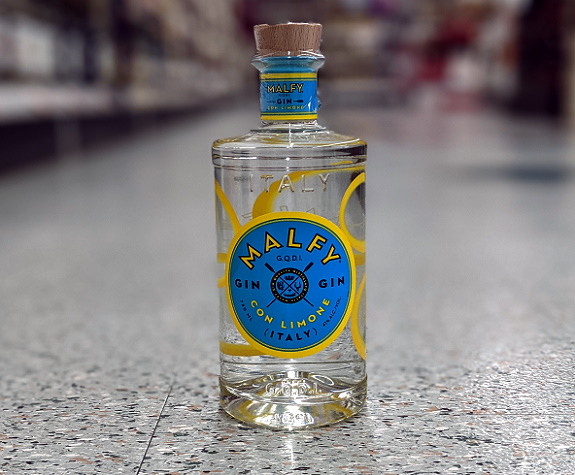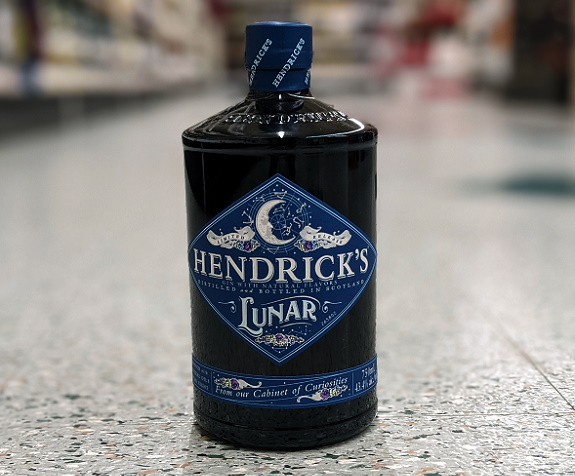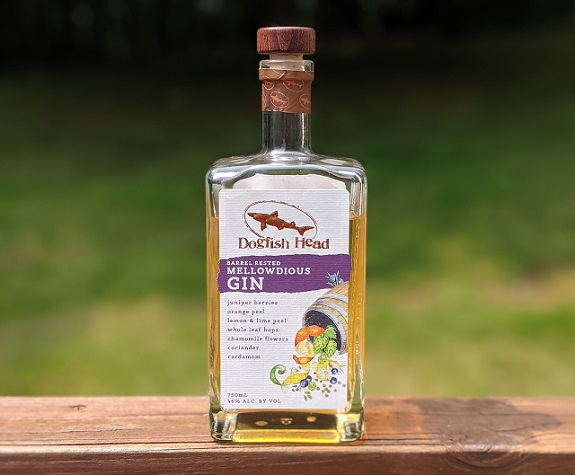NOTE: Prices on liquor can vary, wildly, depending on location (laws, taxes, availability, etc), so prices shown are an estimated range based on in-person observations and online retailers.
Summer is in full swing, and with the return of backyard gatherings comes refreshing adult beverages. There are a good many liquors and beers that play well in the hot months for those who choose to partake responsibly, but I would argue none are more refreshing than gin. Light bodied, floral and citrus, this spirit feels tailor made for the sunshine. And in recent years, few drinks have experienced the same growth in gin, both in terms of mass adoption and artisanal renaissance and experimentation.
Last go around, we dug into our top gin picks on the shelf, from top to bottom to identify what works best as a straight sipper, and what should be reserved as a cocktail. This time, the focus is on artisanal gin outside of the tried-and-true London Dry style. There’s nothing wrong with a good London Dry gin, but with the near-constant growth in America’s favor toward gin, one would be wise to expand their palette and try new breeds that stay true to the history of gin, while offering a unique take on the spirit. These bottles offer an exciting option for a cocktail, and some work splendidly on the rocks.
A note: we certainly don’t encourage excessive drinking, but do encourage you to think deeply about what works for you AND those around you. Don’t be a jerk, don’t be selfish. Analyze your habits honestly and recalibrate accordingly. This is meant to be a guide for those who want to experience the varieties of gin responsibly.
Gray Whale Gin (California, USA) – $35-$40
America’s newfound obsession for distilled gin is driven in large part by a renaissance of American craft distillers focusing on gin. It makes sense, as each region brings forth unique botanicals and fruits to impart a unique flavor characteristic of that region. And, given gin requires no aging – unlike proper whiskey – it creates a short onramp to production for new distillers. Gray Whale Gin from Golden State Distillery is proud of its California roots, using six state-sourced “botanicals” for an exceptional sweet and salty balance of flavor evoking the scent and smell of the ocean on a bright summer day. As is typical in American gin, juniper- the foundation of distilled gin- is present but takes a back seat to other botanicals. In the case of Gray Whale, limes, almonds, fir tree, mint and sea kelp come alongside of the gin. Lime is not an uncommon flavor component in gin, but when matched with the saltiness of the kelp and almonds, the end result is extremely unique and pleasing. Truly a brilliant use of local items like the almond and kelp to authentically bring the Cali/Ocean theme into the bottle and not just a branding tactic.
Not only is the distillate delicious, but the distillery is hyper-focused on sustainability and conservation. The cork is 100% biodegradable, while the paint on the beautiful front-of-shelf worthy bottle is organic. ORGANIC PAINT! (I know, some of you are rolling your eyes). Even better – Golden State Distillery is a member of the 1% for the Planet campaign, donating 1% of their sales to environmental efforts. Drink some good, do some good. A very moderate 86 proof for beachside sipping.
St. George Terroir Gin (California, USA)- $30-$35
Whereas the Gray Whale Gin is an ode to the California coast, the Terroir is derived and inspired by the dense forests of the Northern tier of that same state. As such, the two make for a delightful comparison. Douglas fir, sage and bay laurel take center stage in this botanical blend to drive the forested flavors, and do so with a delicate excellence. St. Geroge separately distills the Douglas fir and sage in dedicated stills, and then vapor distills the other botanicals. Neat. The full list of botanicals is not listed, but coriander, bay leaves, and the foundational juniper are present. All work in concert to create a rich, earthy flavor. There is not much spice or citrus to this gin, so know that when planning your drink. This can certainly do well in a standard G&T, but this would be best served with berries of the bramble, such as blackberry or raspberry, for the full effect. If the Gray Whale is the gin for the beach, this is the one for the mountains and lake. Bottled at an ideal 90 proof.
Drumshanbo Gunpowder Irish Gin (Ireland) – $35-$40
Drumshanbo, made by The Shed Distillery in Ireland, is notable for its use of gunpowder tea – a form of green tea- in the botanical blend. Like the St. George, Drumshanbo is a mix of pot distilled and vapor distilled gin. The aforementioned tea, lime, lemon and grapefruit are vapor distilled, while the rest of the botanicals are pot distilled. That citrus fruit distillation is prevalent. You might not expect it from the packaging and description featuring the tea component so heavily, but this one features strong citrus fruit upfront and balances it all out with that famous juniper note. The tea seems to be the glue that brings all of the disparate botanicals together in an agreeable manner. This one is a good bottle to try for people who want to learn to pick out individual flavors. Rather than all of the botanicals creating a a thematic note, the individual botanicals come through at various points in tasting. This is a fun gin to drink neat, reserve it for slow-sipping occasions. 86 proof.
Malfy Gin con Limone (Italy) – $30-$35
When life hands you lemons, make gin. While the Drumshanbo was a sneaky citrus gin, Malfy makes no attempt to hide its intention. The country’s characteristic lemons offer a true Italia flavor. Not only is the flavor true to Italy, the botanicals are as well. This gin is a simple one: juniper and lemons sourced in-country are the primary flavors. Perhaps a more refined palette could pick out additional flavors, but I get lemon, lemon, more lemon, and some juniper. Malfy doesn’t seem to disclose any other botanicals on their website, either. This is the perfect choice for a summer gin & tonic, as the lemon is the ideal partner for a proper tonic and dash of lime. This is the gin to pour for the member of your group new to gin, especially if he or she typically drinks sugar-filled cocktails. Show them a better way. Now, if you or someone in your circle despises lemon – avoid this like the plague. The weakest of the bunch at 82 proof.
Hendrick’s Lunar Gin (Scotland) – $40-$50
The priciest on the list, due to the reliable Hendrick’s heritage. If you’ve had any experience with gin, chances are at one time or another, you have had a gin cocktail with Hendrick’s. Recently, however, Hendrick’s has released a few seasonal limited editions to inject some excitement into their product portfolio, and as such earns a spot on this list. When a reliable, honored stalwart deviates a touch for a special release, it’s worth a try. Thankfully, that attempt produces a nice variation from the standard Hendrick’s gin. Also distilled by the William Grant & Sons distillery, this gin is heavy on floral flavors. The distillery doesn’t disclose much about the botanical blend, so it’s difficult to note which flowers and spices are used here to distinguish it as a special seasonal edition. Admittedly, while I’m adept at noting fruit flavors, specific florals escape me. Blame it on my first love, bourbon. That said, the floral bouquet is refreshing and enticing. If you or someone you know is a Hendrick’s devotee, this makes a nice gift bottle for a subtle spin on a classic favorite. 88 proof.
Dogfish Head Mellowdious Gin (Delaware, USA) – $40
Gin, from a beer brewer? You bet, and expect to see more crossovers like this in the years to come. Hopefully they’re as good as this one. While there are other breweries now producing spirits (Southern Tier Brewing, Rogue Ales) the masterminds of off-centered ales for off-centered people in Milton, Delaware might be the best of the bunch. This gin from Dogfish head is mellowed in used bourbon barrels for 10 months after coming off the still. The base spirit is a gin with a large batch of botanicals; 16 different ingredients make up this blend. Juniper is present, but takes a back seat to a nice flavor of orange peel accentuated by the bourbon and oak notes. This is the spiciest gin of the bunch, with peppercorn, cinnamon, and two types of cardamom in the botanical basket. A special ingredient true to the brewing roots adds a unique punch of herbaceous flavor: whole leaf cascade hops. This one may not be available near you, but Dogfish Head’s two standard gins are more likely to be found – their Compelling Gin and Whole Leaf Gin. Choose the latter for a stronger hop flavor. In any case, this is a reminder to look outside the norm when picking your next gin.
About the Author: Jason P. spends his days working in the creative marketing department of a big telecom company. He also does a bit of real estate investing on the side. He believes in curating a timeless, classic wardrobe with subtle modern touches for today. He and his wife love hiking with their dog and shopping at local small businesses and antique stores when they travel. Jason is a practitioner of muay thai and traditional boxing, and his favorite drink is a hoppy New England IPA

